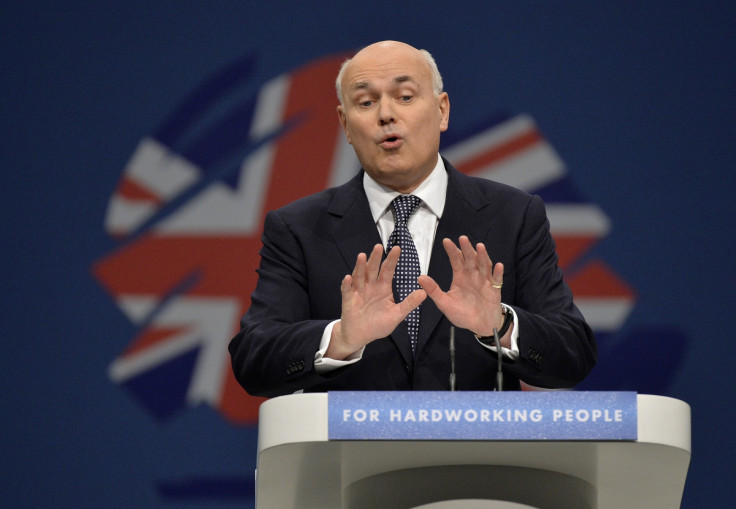Tory Iain Duncan Smith and Labour's Rachel Reeves Locked in "Ill-Informed" Welfare Wars

The government and opposition are locked in a fresh battle over welfare to prove to the electorate which of them will be toughest on the workshy, migrants and benefits cheats.
Ministers Iain Duncan Smith and Theresa May have outlined plans to ban unemployed migrants from claiming housing benefit as well as jobseekers' allowance. The policy was first mentioned by prime minister David Cameron at the end of last year.
Meanwhile, shadow work and pensions secretary Rachel Reeves, in her first major speech since getting the job, announced that a Labour government would ban unemployed youngsters from benefits if they lacked basic maths, English and IT skills and put them into further education training instead.
While both policies are attempting to address genuine issues, the rhetoric surrounding both was clearly designed to chime with public perceptions of welfare as a huge problem that requires tough measures.
Duncan Smith said: "These are strong measures to make sure that British taxpayers don't subsidise people who want to do a bit of benefit tourism." While Reeves declared: "These are tough policies, we are requiring people to do something for their benefit."
She also hinted Labour might support the government's proposals on the basis: "It is right that welfare state should be based on the contributory principle - if you pay something in you deserve a little more out of the system."
It is unhealthy for public debate to be so ill-informed and for politicians to shy away from confronting such widespread popular misconceptions.
But critics fear the parties' attempts to outdo each other on who can be the toughest on migrants and welfare cheats has far less to do with the size of the problem and much more to do with addressing perceptions which have been driven by groups like Ukip and sections of the media.
Peter Kellner of the YouGov polling organisation said the facts regularly got lost in the political argument which now turned largely around perceptions which were often well wide of the mark.
"Various politicians are demanding radical remedies to a problem that is, in fact, far smaller than they suggest or voters think," he said.
In a recent poll for his organisation, voters believed that, of the 2.3 million EU immigrants in the UK, between 400,000 and 500,000 were claiming unemployment benefit. In fact, figures from the Department of Work and Pensions show the true number is just 60,000, or 3%.
Similarly, when asked what proportion of immigrants claimed wider benefits once eligible, voters reckoned it was around 23% while Ukip voters said it was nearer 46%.
Again, the guesses are highly inaccurate with the official DWP figures showing it is only 6%, less than half the rate of British-born adults of working age.
The findings come after reports showing migrants were mostly in work and contributed more than they took from the UK economy.
But the debate has become dominated by the public perception of cheats and benefits tourists and, according to Kellner: "It is unhealthy for public debate to be so ill-informed and for politicians to shy away from confronting such widespread popular misconceptions."
It will be a brave politician, however, who volunteers to be the one to tell voters these "tough measures" are a solution to a problem that is far less severe than they have been led to believe.
© Copyright IBTimes 2025. All rights reserved.






















